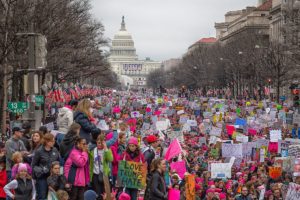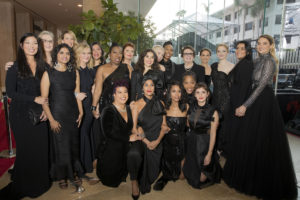Throughout my years in Model UN, I’ve participated in historical, present-day, and even futuristic committees, but something that I’ve noticed is that there are always very few female characters and little to no topics that include femme related subjects. This may be the case in historical committees because historically, women have been pushed out of leadership positions, but even in present-day and futuristic committees there are few female roles. Adding committees on gender and sex equality issues can this empower women who are already involved in MUN, but can also empower women around the world to join Model United Nations. More importantly, these committees would highlight events that may have been overlooked as significant in the study of history. So, below are six ideas for crisis and specialized committees centered on women’s issues, including important milestones and events in the femme community.
The Seneca Falls Convention 1848
Delegates in this committee will act as the main organizers and participants of the Seneca Falls Convention of 1848. This convention was the first ever convention on women’s rights and paved the way for women’s rights activists throughout history and modern times. After Lucretia Scott and Elizabeth Cady Stanton, two abolitionists who met at the World Anti-Slavery Convention in 1840, were barred from the convention floor, they became empowered to found the first convention on women’s rights in the United States. Delegates will convene on July 19th, 1848 to debate and discuss the social, civil, and religious rights of women in the United States, as well as trying to further their characters’ personal agendas, and bring females to the political stage for the first time in U.S history.

The National Association of Colored Women, 1895
While women all over the United States were fighting to gain suffrage, equity was not present within the movement. Though slavery was over, racism and ignorance ran rampant through the country. An “educated suffragist” movement grew in popularity within woman activist circles as well, in order to marginalize and push out women of color. In response, strong women of color gathered together to form the National Association of Colored Women, in 1892. Challenges this conference faced included restrictive voting laws, persecution at voting booths, and lack of representation within the larger activist circles. In this committee, delegates must join together not only to discuss equality for women, but also to discuss how to overcome both layers of disenfranchisement placed on their shoulders.

The International Congress of Women 1915
In the International Congress of Women, delegates will convene on April 28th, 1915 in The Hague, Netherlands to negotiate a peace and resolution to the bloody conflict that is World War I. The congress will consists of esteemed and prominent international women from 12 countries including Great Britain, Italy, Austria-Hungary, Poland, Belgium, and the United States. The congress was a result of an invitation to women’s rights activists around the world, sent by Aletta Jacobs, the leader of a Dutch women’s suffrage organization. Delegates in this committee must come up with a lasting peace agreement to World War I while still overcoming the societal restrictions on women during this time period.
The Women’s March National Team 2016
Amidst the chaos surrounding the 2016 U.S Presidential Election, delegates must unite women and activists around the world, by planning the 2017 Women’s March. Acting as the National Team of the Women’s March, delegates may also use their characters’ political connections to gain popularity for the March and for themselves. Topics will also focus on how to bring intersectionality to such a large population of diverse people, and how to include and fight for trans women’s rights. Delegates will also face controversy from political figures’ questions such as security, and deal with potential violent clashes with counter protesters.

The Committee on the Organization of the Time’s Up Movement- 2017/18
In the committee on the organization of the Time’s Up Movement, Hollywood’s elite must come together in order to confront the growing problem of sexual harassment. As a group, delegates will work to launch projects and campaigns to address many issues that women face, specifically sexual harassment. Along with working as a committee to empower women around the world, delegates will have to manage their lives as prominent public figures and members of the entertainment industry. In this current and complex committee delegates will face controversy, scandals, and so much more!

Board of the Human Rights Watch
This non-profit organization is not often simulated; in fact, while boards of directors are simulated frequently, non-profit boards are often but it does important work. A specialized committee simulating the Human Rights Watch board could focus on topics such as how to bring girls’ education funding or access to more restrictive countries, and how to protect trans rights across the world as they are often targeted in hate crimes.
With any historically sensitive committees like these, it’s extra important to be cautious, factual, and a critical thinker as we try to examine what has prevented gender and sex equity throughout the years. Sometimes, the reason these committees don’t exist might be for the reason of avoiding conflict and discomfort. However, while Model UN is an activity, beginning serious conversations like these will become more important in the future as we move toward a more progressive and equitable society.




